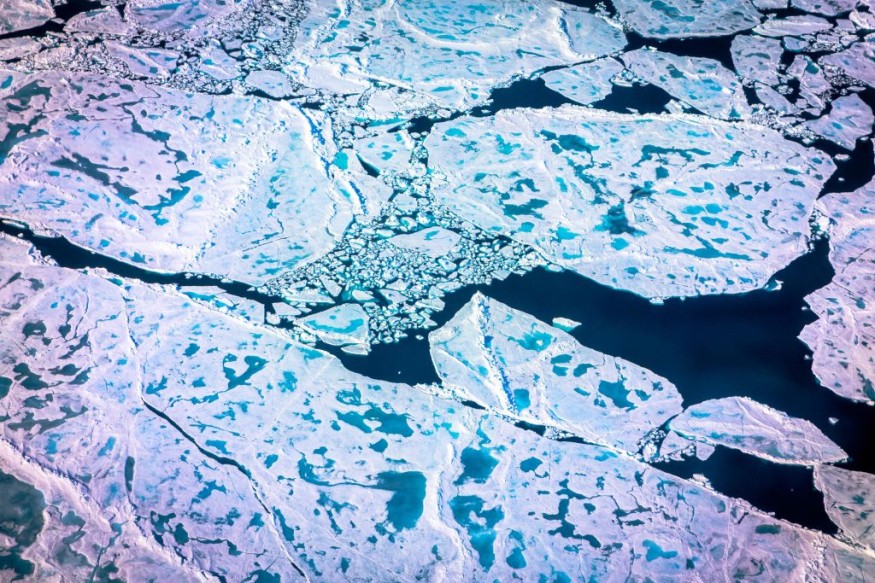
The Arctic Ocean could witness its first day without sea ice as early as 2027, according to a groundbreaking study published in Nature Communications. This milestone, while extreme, is within the realm of possibility due to rapidly increasing global temperatures and greenhouse gas emissions.
Scientists predict that this unprecedented event — defined as a day when Arctic sea ice coverage drops below one million square kilometers — could occur between 2027 and 2043. Using over 300 computer simulations, researchers determined that this timeline is likely regardless of human efforts to curb emissions, though cutting emissions could delay the inevitable.
Arctic Ice Melt Accelerates: First Ice-Free Day May Arrive by 2027, Scientists Warn
The team, led by experts from the University of Colorado Boulder and the University of Gothenburg in Sweden, explained how climate change accelerates Arctic ice melt, The Hill said.
Warmer-than-average seasons, combined with extreme weather patterns, could lead to rapid melting.
For instance, a warm autumn that weakens ice followed by a mild winter and spring could prevent new ice from forming, leading to the first ice-free day.
This potential event represents more than just a loss of ice; it marks a dramatic alteration in the Arctic's natural environment.
Researchers warn that diminished sea ice could disrupt the Earth's climate system. Sea ice acts as a protective shield, reflecting sunlight and keeping the Arctic cool. Without it, darker ocean waters would absorb more heat, causing a rise in global temperatures.
The absence of ice could also affect weather patterns worldwide. Changes in Arctic wind and ocean currents might result in more frequent and severe storms, droughts, and floods across the globe.
Scientists Warn of Alarming Ice Loss and Global Consequences
According to PhysOrg, despite the dire warnings, researchers offer a glimmer of hope: reducing greenhouse gas emissions can significantly delay the ice-free timeline and limit the duration of ice-free conditions.
While a single ice-free day might not dramatically change the Arctic's landscape, it symbolizes humanity's profound impact on the planet.
Experts stress that immediate action is crucial. The Arctic is losing ice at an alarming rate of more than 12% per decade, with this year's sea ice minimum already among the lowest recorded. Even small reductions in emissions can help preserve Arctic ice and mitigate global warming's cascading effects.
This research underscores the urgency of addressing climate change. The Arctic's transformation from a snow-covered landscape to an open ocean serves as a stark reminder of the consequences of inaction.
Scientists are now calling on policymakers and global citizens alike to commit to sustainable practices, ensuring the Arctic and its critical role in regulating Earth's climate can be preserved for generations to come.
© 2025 ScienceTimes.com All rights reserved. Do not reproduce without permission. The window to the world of Science Times.











